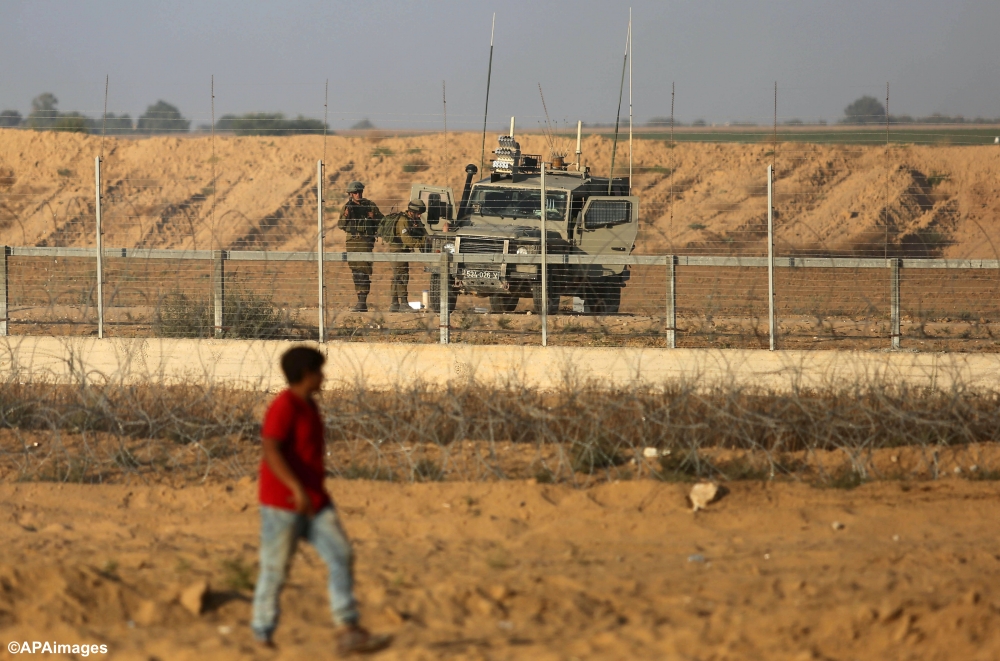29 November marks the International Day of Solidarity with the Palestinian People. On this day, in 1947, the UN General Assembly adopted Resolution 181(II), which provided for the partition of….

29 November marks the International Day of Solidarity with the Palestinian People. On this day, in 1947, the UN General Assembly adopted Resolution 181(II), which provided for the partition of historic Palestine into two states. During the last 74 years, the State of Israel has denied all Palestinians the exercise of their fundamental and inalienable rights, including the right to self-determination, and subjects them to an institutionalized and systemic regime of racial domination and oppression—now recognized as apartheid.
To mark this day, Al Mezan Center for Human Rights issues a new report, ‘The Gaza Bantustan—Israeli Apartheid in the Gaza Strip’, which considers Israeli apartheid from the perspective of two million Palestinians struggling to live in the Gaza Strip.
As a sealed-off enclave, fragmented from the rest of the occupied Palestinian territory (OPT) and controlled by Israel within its apartheid system, Gaza is a strip of land that can in many respects be likened to a South African bantustan. While the Israeli government purports to justify the closure and related restrictions under the guise of ‘security’, this report shows how Israel’s policies are in fact motivated by its intent to separate and divide Palestinians and thereby to assert its domination over them, in furtherance of its overarching settler-colonialist agenda.
‘The Gaza Bantustan—Israeli Apartheid in the Gaza Strip’ builds on Al Mezan’s decades-long work to promote respect, protection, and fulfillment of international law in the Gaza Strip, an integral part of the OPT, and is the Center’s first report focused on apartheid in Gaza. The report—draws upon relevant work by Palestinian, Israeli, and international human rights organizations, academics, and experts, and reaffirms that Israel’s institutionalized and systemic racial domination and oppression of the Palestinian people, including those residing in Gaza, contravenes Article 3 of the International Convention on the Elimination of All Forms of Racial Discrimination, amounts to the crime of apartheid according to the Apartheid Convention, and constitutes a crime against humanity as defined by the Rome Statute of the International Criminal Court.
Various “inhuman acts” calculated to “establish and maintain domination by one racial group over another” as defined by the UN Apartheid Convention are discussed. Those include: the use of excessive force and the recurrent military targeting of civilians and civilian homes, killing thousands; the arbitrary arrest and detention of children, patients, fishermen, and other vulnerable groups; and the sustained closure and blockade. Al Mezan concludes that these practices amount to murder, infliction of mental and bodily harm, arbitrary arrest and illegal imprisonment, imposition of living conditions calculated to cause the physical destruction of the population in whole or in part, and denial of the right to freedom of movement and to leave and return, as defined by the Apartheid Convention.
This report is issued at a critical time for Palestinian civil society and human rights defenders, following the recent designation of six Palestinian human rights organizations as “terrorist” by the Israeli government.
Al Mezan calls upon the international community to fulfill its obligations to end Israel’s iniquitous apartheid regime as it did in relation to its South African predecessor. As Nelson Mandela said in 1997:
The United Nations took a strong stand against apartheid; and over the years, an international consensus was built, which helped to bring an end to this iniquitous system…but we know too well that our freedom is incomplete without the freedom of the Palestinians.
